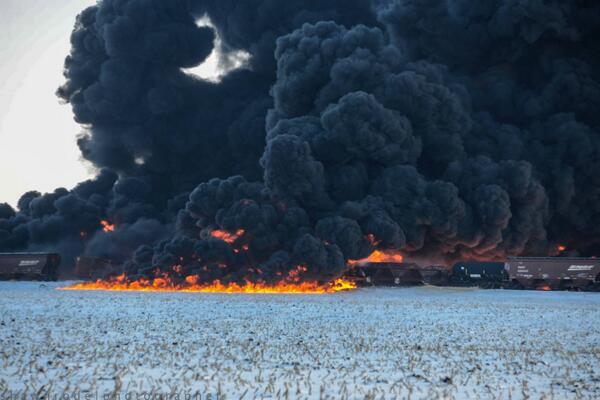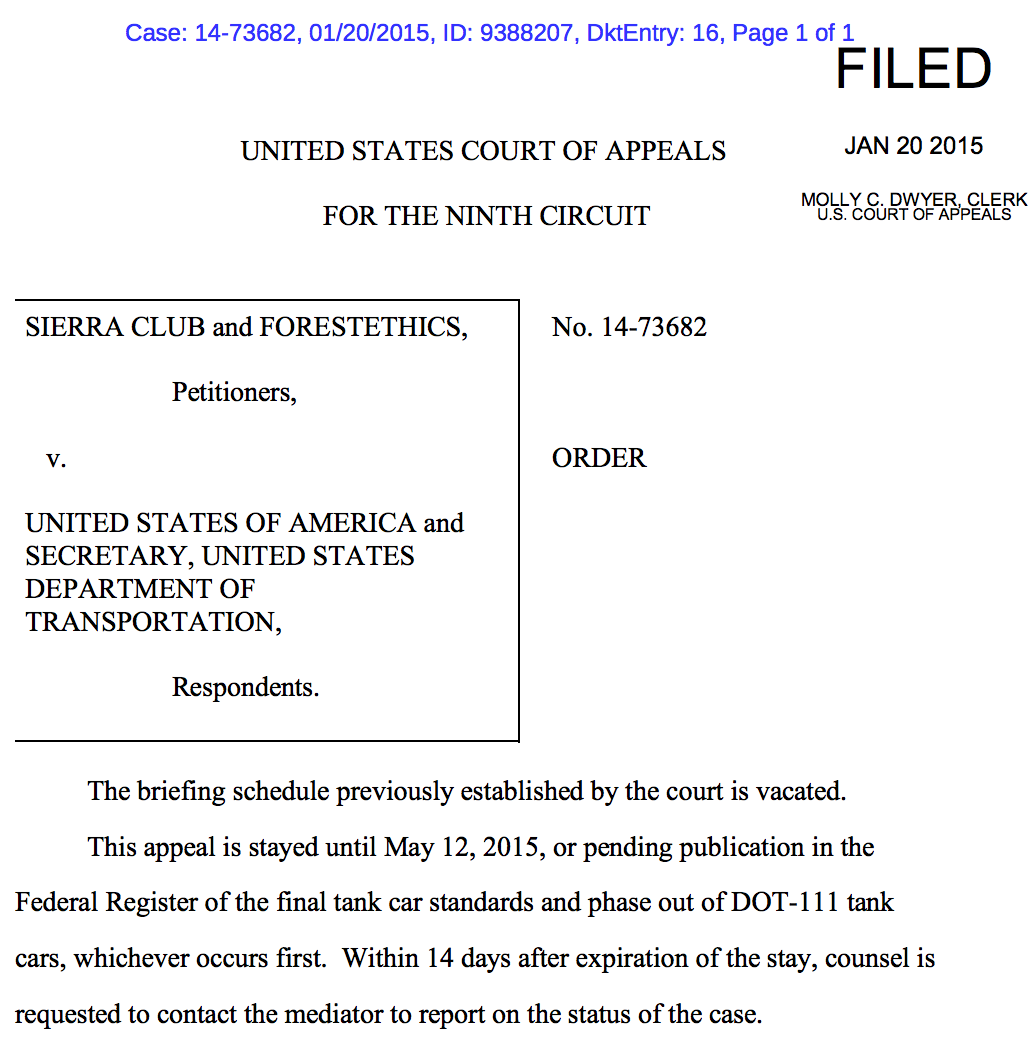A U.S. federal court has ordered a halt in proceedings until May in a case centering around oil-by-rail tankers pitting the Sierra Club and ForestEthics against the U.S. Department of Transportation (DOT). As a result, potentially explosive DOT-111 oil tank cars, dubbed “bomb trains” by activists, can continue to roll through towns and cities across the U.S. indefinitely.
“The briefing schedule previously established by the court is vacated,” wrote Chris Goelz, a mediator for the U.S. Court of Appeals for the Ninth Circuit. “This appeal is stayed until May 12, 2015, or pending publication in the Federal Register of the final tank car standards and phase out of DOT-111 tank cars, whichever occurs first.”
Image Credit: U.S. Court of Appeals for the Ninth Circuit
Filing its initial petition for review on December 2, the Sierra Club/ForestEthics lawsuit had barely gotten off the ground before being delayed.
That initial petition called for a judicial review of the DOT‘s denial of a July 15, 2014 Petition to Issue an Emergency Order Prohibiting the Shipment of Bakken Crude Oil in Unsafe Tank Cars written by EarthJustice on behalf of the two groups. On November 7, DOT denied Earthjustice’s petition, leading the groups to file the lawsuit.
Initially, DOT told the public it would release its draft updated oil-by-rail regulations by March 31, but now will wait until May 12 to do so. As reported by The Journal News, the delay came in the aftermath of pressure from Big Oil and Big Rail.
“In a joint filing, the Association of American Railroads (AAR) and the American Petroleum Institute (API) contend the tank car industry doesn’t have the capacity to retrofit the estimated 143,000 tank cars that would need to be modernized to meet the new specifications,” wrote The Journal News. “Nor can manufacturers build new tank cars fast enough, they say.”
The “bomb trains” carrying volatile crude oil obtained via hydraulic fracturing (“fracking”) from the Bakken Shale, then, will continue to roll unimpeded for the foreseeable future. They will do so in the same DOT-111 rail cars that put the fracked oil-by-rail safety issue on the map to begin with — the July 2013 deadly explosion in Lac-Mégantic, Quebec.
And as DeSmogBlog has reported, industry promises to phase-out DOT-111s on a voluntary basis have rung hollow.
“The courts and the administration are dragging their feet on common sense safety steps that will take the most dangerous oil tanker cars off the tracks, slow down these trains, and help emergency responders prepare for accidents,” Eddie Scher, communications director for ForestEthics, told DeSmogBlog.
“We filed our lawsuit because the DOT is not moving fast enough on safety. This court’s decision ignored the imminent threat to the 25 million Americans who live in the blast zone and the communities around the nation that don’t have the luxury of waiting for DOT and the rail and oil industry lobbyists to finish their rule.”
Photo Credit: Shawn Rode
Subscribe to our newsletter
Stay up to date with DeSmog news and alerts







